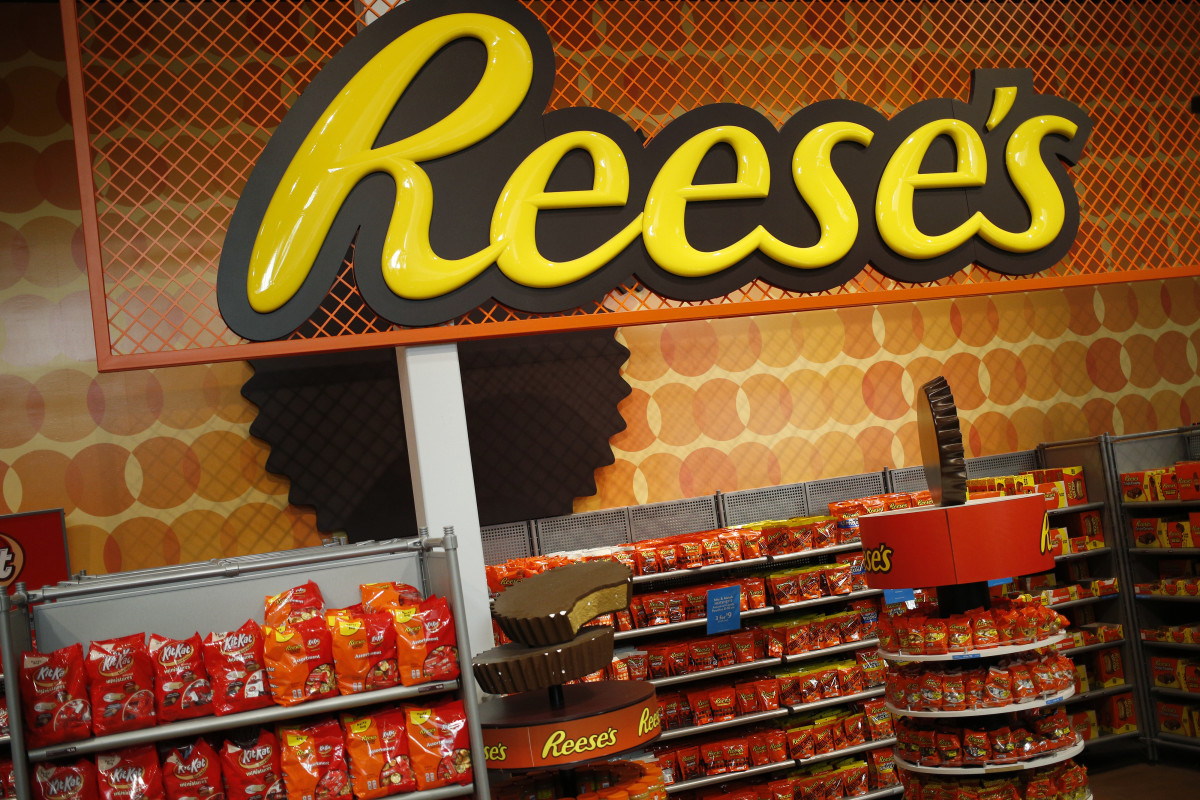
For everyone who celebrates, October is one of the spookiest and most festive times of the year.
It marks the unofficial beginning of the holiday season, as many big retailers officially open sales season with blowout promotions and days of markdowns.
Credit card spending climbs. Leaves begin to change. Neighbors deck out their houses with skeletons, carved pumpkins, and spider webs. Old scary movies are constantly playing, often at weird hours. And children bounce home from school on candied-up sugar highs.
Many of these things are frightening but within the tolerable limits of our adrenals' upper thresholds. However Hershey HSY -owned candy brand Reese's may have recently landed itself in some scary territory of the legal variety.
Some Reese's Cups may feature misleading packaging
Each year, millions of Reese's products are exchanged between trick or treaters. As the country's most popular Halloween candy, it's easy to understand why so many people clamor for the sweet stuff. It's got the perfect ratio of peanut butter to chocolate and is packaged neatly to prevent mess or spillage.
Some eagle-eyed consumers, though, claim some of its packaging might be misleading. And according to consumer advocate and former assistant attorney general in Massachusetts Edgar Dworsky, that could spell legal trouble for the brand.
Dworsky, who goes by MrConsumer on his advocacy page Consumer World, points out that some Reese's in drugstores around the U.S. features the following print: "You could WIN $25,000. See details inside."
Dworsky points out that, in order to be considered for something like a sweepstakes-style promotion, consumers should not have to pay to play. But to access their chances, in this case, they would most likely need to open up the Reese's packaging to see if they won – something that probably requires a purchase.
The AP reports that you do in fact need to open the packaging in order to access the fine print. Inside it, the first line of the print reads "NO PURCHASE NECESSARY. A PURCHASE WILL NOT INCREASE YOUR CHANCE OF WINNING."
"The law of most states says that paying a price (“consideration”) for the chance to win a prize is a lottery, and usually only the state and charities are allowed to conduct them. (This is also the definition of “gambling” in Pennsylvania, where The Hershey Company is headquartered,)" Dworsky writes.
Illegal to tell someone to pay to enter sweepstakes
The FTC, for its part, writes that "It’s illegal for a company to tell someone to pay to enter a sweepstakes contest, or that buying something increases their odds of winning."
A lottery, on the other hand, is when a customer actually buys something to be considered for a prize.
The FTC has not commented on whether it was investigating Hershey.
Hershey told the AP on Monday that its website includes the full terms of the contest, and some displays have QR codes that provide more detail outside the packaging.
"We are aware of the Associated Press’ article regarding the Reese’s sweepstakes. As with all of our promotions, we place great care and diligence to ensure they are compliant with all regulations. Appropriate disclosures with details regarding the REESE’S University Win $25,000 sweepstakes, including how to enter without purchase, are clearly and conspicuously disclosed to consumers across a variety of touchpoints," Hershey told TheStreet in a statement.







